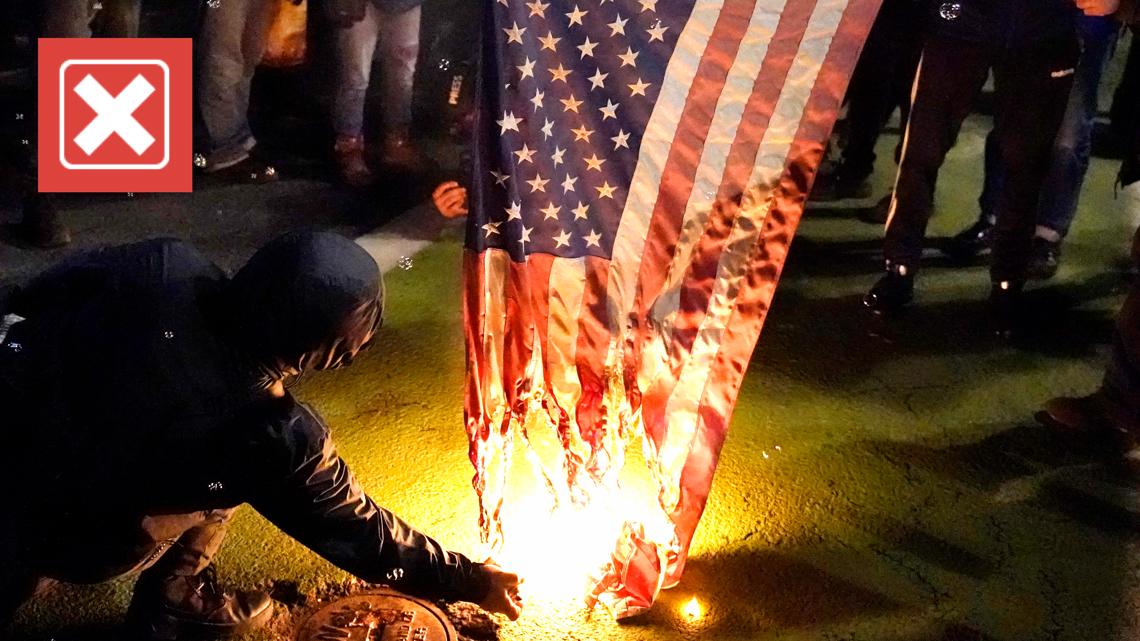The sight of an American flag being burned can evoke effective feelings. For some, it represents a profound act of protest in opposition to government policies or societal troubles. For others, it’s an affront to countrywide pride and team spirit. This contentious act has sparked heated debates for many years: Is it a valid form of unfastened expression or a disrespectful violation of something sacred? As we explore the complexities surrounding flag burning, we’ll navigate via the maze of felony rights, public opinion, and alternative expressions of dissent that form this ongoing controversy. Buckle up as we delve into whether or not burning the American flag is unlawful and what it genuinely signifies in today’s society.

The First Amendment and Free Speech Rights
The First Amendment is a cornerstone of American democracy. It guarantees residents the right to free speech, making an allowance for numerous opinions and expressions.This change has been tested through diverse forms of protest, consisting of flag burning. Many see it as a powerful image of dissent towards government movements or regulations.
Courts have upheld that even arguable acts like burning the American flag fall below this protection. The Supreme Court’s rulings assist the idea that expression can take many forms, even the ones deemed offensive.Critics argue that such movements disrespect country-wide symbols, even as supporters declare it is an essential part of political discourse. Navigating these conflicting views shows a good deal about our society’s values regarding freedom and respect.
Laws and Court Cases Regarding Flag Burning
The legality of burning the American flag has been tested in several court cases. One landmark decision was from the Supreme Court in 1989 with Texas v. Johnson. The ruling showed that flag burning is included underneath the First Amendment as a shape of symbolic speech.In this example, Gregory Lee Johnson set a fireplace to an American flag throughout a political protest. His conviction for desecration was overturned, sparking national debates on patriotism and unfastened expression.
Following this, Congress attempted to bypass a Flag Protection Act. However, it faced backlash and changed into deemed unconstitutional after a chain of demanding situations in courts.Another substantial case arose in 1990 related to United States v. Eichman, which reaffirmed the safety against flag desecration as valid expressive conduct. These rulings underscore how deeply intertwined regulation and private beliefs can be on the subject of symbols like the American flag.
Public Opinion on Flag Burning
Public opinion on flag burning is deeply divided. For many, the American flag represents freedom and cohesion. Burning it could feel like a direct affront to those ideals.
Conversely, others view flag burning as a valid shape of protest. They see it as an expression of dissent against governmental rules or societal issues.
Surveys frequently show that more youthful generations are extra accepting of this act compared to older demographics. This generational shift highlights changing attitudes in the direction of symbols and their meanings in society.Social media amplifies these critiques, with heated debates sparking online. The emotional weight tied to the flag can lead to passionate discussions, showcasing the complexities surrounding this issue without a clear consensus.
In public boards and gatherings, you’ll locate sturdy reactions both for and towards the act itself. Each attitude gives precise insights into what patriotism means in latest America.
Alternatives to Flag Burning as a Form of Protest
Flag burning often draws severe debate and emotional reactions. However, various opportunity forms of protest can be simply as impactful without the talk.
One powerful technique is a peaceful demonstration. Marching or collecting in team spirit sends a strong message at the same time as fostering community engagement. It invitations dialogue in preference to division.Artistic expression gives some other streets for protest. Creating powerful artwork or performance portions can convey deep emotions and critiques approximately societal troubles without resorting to destruction.
Social media campaigns have emerged as contemporary equipment for activism. Utilizing platforms to spread attention and proportion private stories encourages communication on essential topics.Letter writing or petitioning lawmakers additionally empowers individuals to voice their worries constructively. Engaging directly with representatives fosters change through legislative channels, highlighting issues that count number most to communities.
These alternatives allow for meaningful expressions of dissent even as preserving admiration for countrywide symbols.
Conclusion: Understanding the Complexities of this Issue
The trouble of flag burning is a long way from honesty. It conjures up extreme emotions, regularly dividing public opinion deeply. For some, it symbolizes a profound disrespect to the country and its values.
Conversely, others view it as an important expression of dissent. The act turns into a canvas for protest in opposition to policies or movements perceived as unjust. This duality highlights the difficult stability between patriotism and loose speech rights.Legal perspectives add similar layers to this debate. Supreme Court rulings confirm that flag burning falls under protected speech, but many nonetheless endorse laws banning it altogether.
Thus, discussions surrounding this topic require sensitivity and cognizance of differing viewpoints. Understanding these complexities fosters more meaningful conversations about freedom and appreciation in society.
Faqs
Q. Can you get arrested for burning an American flag?
A. Generally speaking, no. However, if accomplished along other illegal activities or in certain contexts (like all through riots), one may additionally face prison consequences unrelated directly to the act itself.
